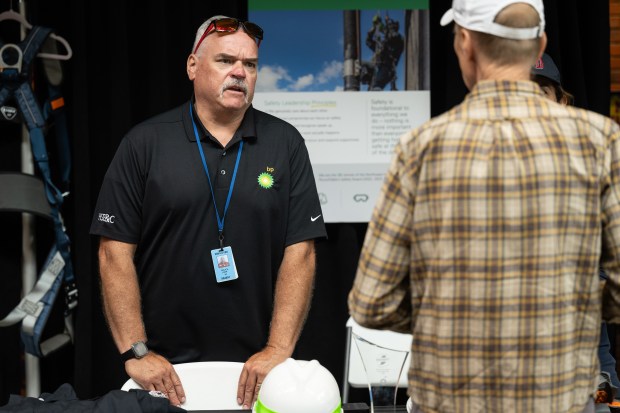The BP Whiting Refinery submitted paperwork to acquire the Mascot Hall of Fame with plans to build campus-style office buildings for its employees on the site.
The BP Whiting Refinery held its first community night Thursday at the Mascot Hall of Fame, which is located across the street from the refinery.
The event started with a panel discussion, where residents could submit questions on note cards, that was attended by about 100 employees and residents. After the panel, attendees could visit stations to learn about different elements of the refinery, from safety to lab work.
“We realize we have a big refinery in a lot of people’s backyards,” said Donnie Brown, former Vice President of Refining at BP Whiting. “We want to make sure we’re more open.”
Brown was promoted Friday to BP’s Senior Vice President of Safety & Operational Risk Assurance. Chris DellaFranco, who has been with ExxonMobil for more than 20 years, will begin as the VP of the Whiting Refinery on July 1, according to a BP news release.
During the event, Brown said the company submitted a bid for the land with the city of Whiting. Brown said the company would like to build a campus with office buildings and green space for employees to utilize.
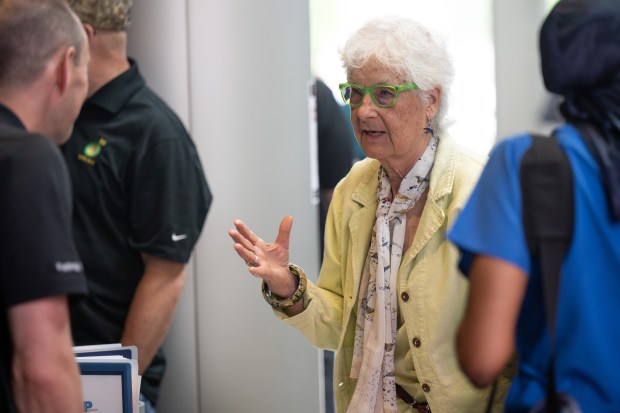
“We’re always looking for opportunities to get our facilities in a modern place,” Brown said.
Whiting’s Redevelopment Commission issued a request for proposals to purchase 41 parcels, which includes the Mascot Hall of Fame, said Whiting Mayor Steve Spebar. The deadline for the proposals was June 4, he said, and BP filed a proposal for the Mascot Hall of Fame property.
The city owns the museum structure and land, Spebar said, and the museum hasn’t generated money for the city in the last few years. Officials from other towns have reached out to city officials to bring the museum to their towns, he said.

“There’s a significant bond issue that’s tied to the building that the purchaser would have to compensate the city for,” Spebar said. “If the mascot museum was sold, it turns the mascot museum from a non-taxpaying budgetary item to a tax-paying property. That’s an immediate financial gain.”
Spebar said he’s hopeful that at the Redevelopment Commission’s July 2 meeting a recommendation will be presented regarding BP’s request for proposal.
In addition to the bid for the Mascot Hall of Fame, Brown said BP will expand into lower carbon energy through blue hydrogen production.

“We are looking at those types of investments for the future,” Brown said.
The refinery was established in 1889 by Standard Oil, Brown said, and is the sixth largest in the country and largest in the Midwest. The refinery processes about 440,000 barrels of crude oil daily, he said.
Rudy Gallegos, Director of Health, Safety, and Environment at BP Whiting, said the refinery gets crude oil from Canada and Texas. In basic terms, Gallegos said the refinery works to heat up the crude oil, break it up into products, remove sulfur and add “good elements” that go into gasoline.
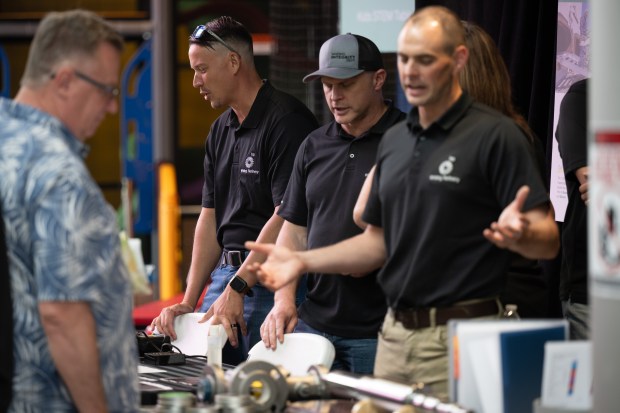
In February, the refinery experienced a power outage that caused a disturbance in the community, Brown said. No one was injured in the incident, he said, but the refinery was evacuated and roads were shut down for an extended period of time.
To safely shut down the refinery, there was an unplanned flaring of gasses — emitting odors similar to burned rubber — into the air. Considerable public outcry erupted in the wake of the power outage, which caused attendees of an February public hearing on BP’s air quality permit to demand more stringent guidelines. IDEM reiterated that it was limited by what it can do under the re-permitting process, thus being unable to take previous permit violations into account.
Brown thanked the community for its patience as the refinery returned to regular operations.
“You allowed us to recover,” Brown said.
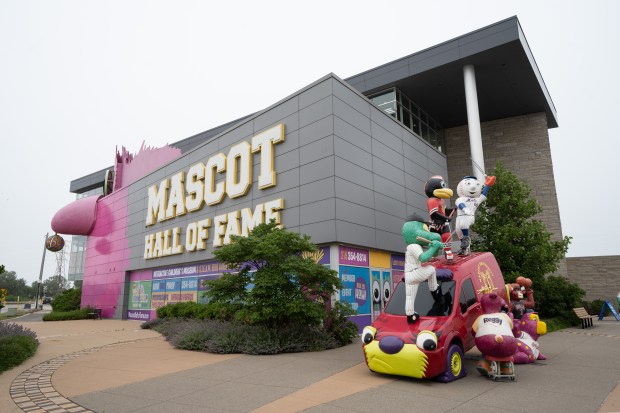
Carolyn Marsh, who has been the administrator of the BP Whiting Watch Facebook page for 10 years, said the group has been calling for a citizen advisory committee, so she was pleased to hear that such a committee will be formed in the fall.
Marsh said she wasn’t pleased with the proposal BP filed for the Mascot Hall of Fame because it won’t generate revenue for the city.
“I’m very upset by it,” Marsh said.
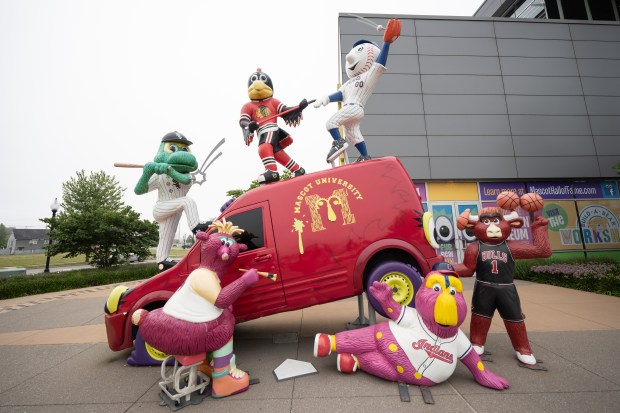
Jim Florek, who worked at the refinery for 28 years before retiring 15 years ago, said the Mascot Hall of Fame was a good idea for the city, but it isn’t profitable and BP needs office space for its employees.
Florek said he enjoyed the event and learning more about the refinery and its plans for the future.
“It was great. They need to do these things more often,” Florek said.
Post-Tribune archives contributed.


